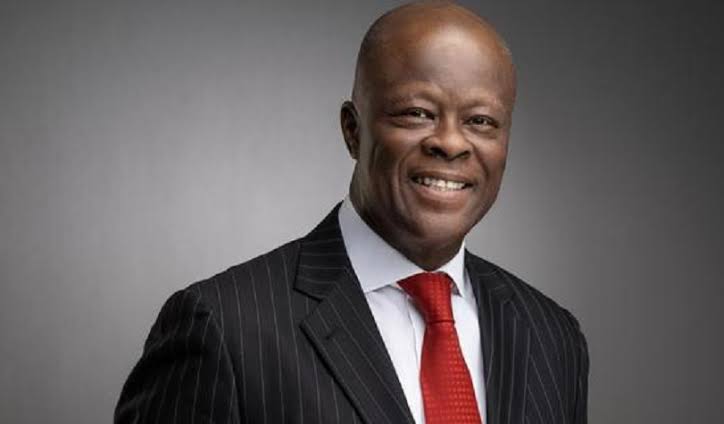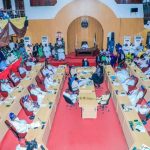Less than four months to the close of the 2025 fiscal year, the implementation of the 2025 appropriation, the guiding document of public financing, may still not have commenced fully.
Revelations from the meeting between the national economic managers and the House of Representatives, yesterday, suggested the Federal Government’s priority is still on the 2024 appropriation, with the supposed running budget said to have been stalled by “procurement process”.
Minister of Finance and Coordinating Minister of the Economy, Wale Edun, had told the House of Representatives Committee on Appropriations, chaired by Abubakar Bichi, that the implementation of the 2024 budget had reached 80 per cent.
Critical projects outlined in the budget, he said, are still underway across the country, suggesting that the document continues to run in place of the current budget that was passed in the first quarter of the year.
Edun, who appeared alongside the Minister of Budget and Economic Planning, Senator Atiku Bagudu; the Director-General of the Budget Office, Tanimu Yakubu and the Accountant-General of the Federation, Shamsudeen Ogunjimi, said implementation of the 2024 budget had been extended by the National Assembly until December, hence execution remains ongoing.
“As is customary, we reviewed the budget performance and looked at 2024. Overall, it is around 80 per cent. And as you know, the budget for 2024 was extended by the National Assembly until December; so, it is still running; still a work in progress,” Edun said. He added that discussions also focused on the 2025 budget, with particular attention on grassroots projects such as irrigation and rural infrastructure.
These projects that touch the grassroots and provide support, resources, and facilities must remain a priority,” he said. Apparently, beyond the minister’s disclosure, Nigerians do not have the benefits of knowing the exact performance of the 2024 budget or the progress made so far in the case of the 2025.
Budget Implementation Report (BIR), a document previously released quarterly, has not been updated beyond the third quarter of last year. And Edun’s estimation is a generous mark-up on what the BIR says about the 2024 appropriation, at least, till the third quarter.
Indeed, the FG achieved an 81 per cent performance of retained revenue across the first three quarters of last year on average. The prorated retained revenue projection was N17.26 trillion, whereas the government recorded N14 trillion.
But as in the previous years, the capital expenditure performance, which was the focus of Edun’s engagement with the lawmakers, fell short of the revenue mobilisation performance. According to the BIR, the FG had a total capital expenditure (which includes government-owned enterprise (GOE) spending and multilateral/bilateral tied loans) of N5.86 trillion.
The value was less than 43 per cent of the total N13.77 trillion capital project spending estimated and 56.7 per cent of the prorated estimates for the first three quarters (N10.33 trillion). The government would need to release additional N5.2 trillion or nearly what it spent in the first three quarters to round off the capital budget performance to 80 per cent, Edun claimed the administration had achieved.
Sadly, the FG overshot its N6.2 trillion prorated debt service spending for the three quarters to N8.94 trillion. This translates to an overrun of 44 per cent – a situation that might have led to the starving of critical capital projects.
As at the end of the third quarter, the FG also overshot the entire projected N6.06 trillion domestic borrowing for the year by N1 trillion, perhaps to make up for the zero external debt incurred for the three quarters. The government had planned to borrow N1.77 trillion from the external market for the entire year.
On concerns about additional spending, the finance minister clarified that there were no discussions on a supplementary budget for 2025. In previous years, supplementary budgets have become a tradition. President Tinubu, in both 2023 and 2024, prepared supplementary budgets with implementation running into subsequent years.
Some time last year, the government was implementing the consolidated 2023 budget alongside the 2024 budget and its supplementary budget. Earlier, The Guardian reported a potential logjam in the fiscal space with multiple budgets being implemented concurrently. The government dismissed the concerns, saying there is no law that prevents it from executing multiple appropriations to drive economic growth and prosperity.
At yesterday’s meeting, Bagudu said members of the National Assembly commended the government’s respect for legislative oversight and the cordial working relationship between both arms of government.
Bichi also described the engagement as “fantastic”, stressing that lawmakers are keen on ensuring Nigerians feel the impact of the budgets. He said while there were concerns about the pace of implementation, the ministers assured lawmakers that more progress would be recorded before year’s end.
“We did not discuss anything about a supplementary budget. The focus now is on accelerating the execution of the 2024 and 25 appropriation acts so Nigerians can see tangible changes before the end of the year,” he said.
Speaking with journalists after a closed-door session with the government’s economic team, Bichi explained that delays were largely due to the procurement process. He promised that the government would soon commence implementation of the 2025 Appropriation Act.
The budget was only approved in February. The procurement process takes time, and now they will start implementing it as soon as possible,” he said. Bichi said the lawmakers were satisfied with the government’s commitment to ensuring budgetary provisions translate into real development.
“Members are seriously concerned about implementation and the ministers confirmed to us that Nigerians will soon begin to see tangible changes and development from the budget,” he, however, noted. He further assured that the 2024- 25 Appropriation Acts would be fully implemented.
“Before we reach 2026, you will see serious changes between now and the end of the year. They have acknowledged their progress to us, and let’s see how far we can go,” he said. Asked about the timeline for the presentation of the 2026 budget, Bichi replied: “I do not know, honestly.”








